


• 10 years later, employed grandmothers are 12% less likely to work full-time, compared to a 2% reduction for grandfathers. Women also see larger income drops.
• The gendered patterns in infections + employment suggest women still are more involved in informal childcare provision.
• 10 years later, employed grandmothers are 12% less likely to work full-time, compared to a 2% reduction for grandfathers. Women also see larger income drops.
• The gendered patterns in infections + employment suggest women still are more involved in informal childcare provision.
• Respiratory infections jump in the first years of grandparenthood: +56% for women, +31% for men
• Grandparents are slightly less likely to see a doctor for mental disorders (−4.5%) & cardiovascular issues (−3.3%)
• Grandmothers have fewer musculoskeletal-related visits (−3.8%)
• Respiratory infections jump in the first years of grandparenthood: +56% for women, +31% for men
• Grandparents are slightly less likely to see a doctor for mental disorders (−4.5%) & cardiovascular issues (−3.3%)
• Grandmothers have fewer musculoskeletal-related visits (−3.8%)
What happens to health and work when people become grandparents? Using Norwegian register data on all individuals born 1950-1960, we use event-study models comparing grandparents to not-yet grandparents to track changes in health and labour supply.
🔗 www.ssrn.com/abstract=571...


What happens to health and work when people become grandparents? Using Norwegian register data on all individuals born 1950-1960, we use event-study models comparing grandparents to not-yet grandparents to track changes in health and labour supply.
🔗 www.ssrn.com/abstract=571...
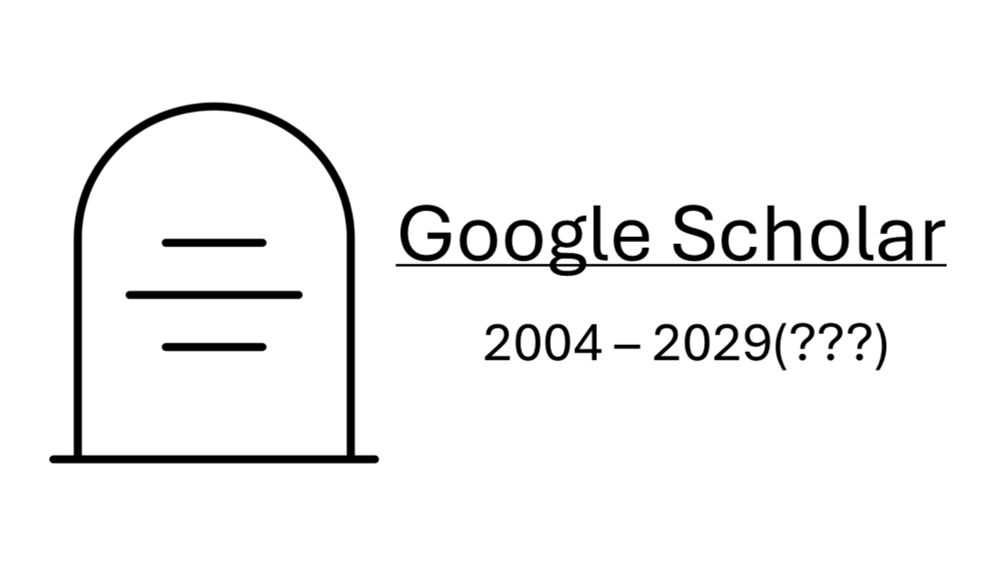
I also wrote a more detailed thread when I posted the preprint last year. Check it out here if you are interested: bsky.app/profile/hfsu...


I also wrote a more detailed thread when I posted the preprint last year. Check it out here if you are interested: bsky.app/profile/hfsu...
hfsu.shinyapps.io/prevalence_b...

hfsu.shinyapps.io/prevalence_b...
doi.org/10.1111/jcpp...
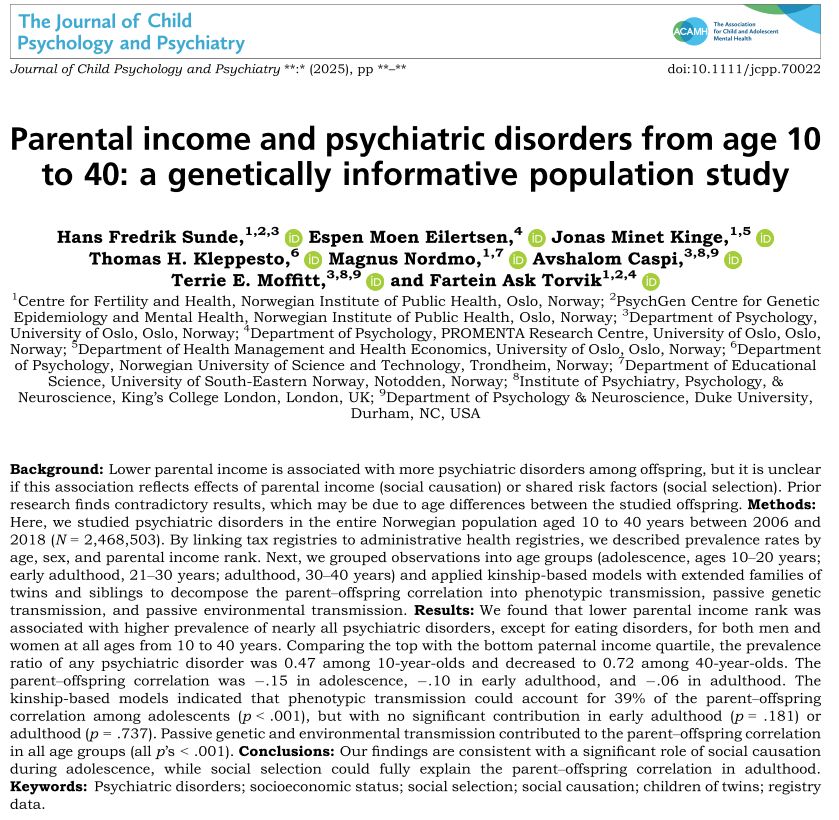
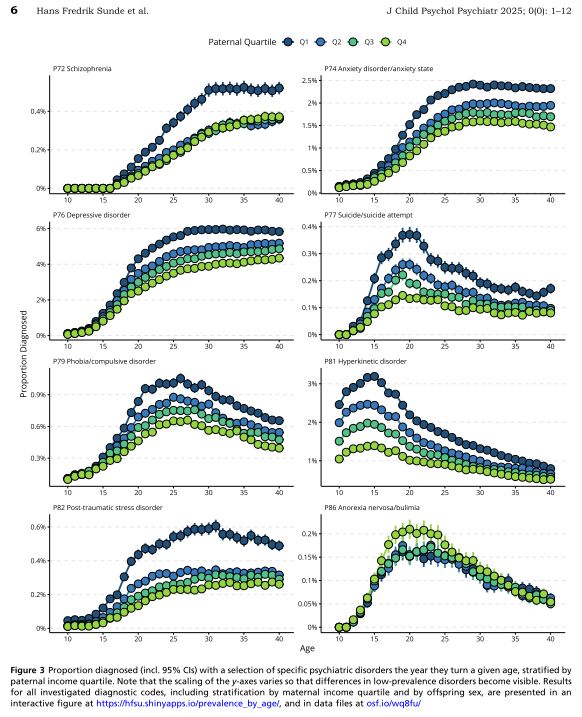
doi.org/10.1111/jcpp...

🎓 Educational attainment also independently predicted better mental health.
But the highest risk was for men who were low in both cognition and education.
This group faced the highest probability of adult psychiatric diagnoses.

🎓 Educational attainment also independently predicted better mental health.
But the highest risk was for men who were low in both cognition and education.
This group faced the highest probability of adult psychiatric diagnoses.
New study: How do adolescent cognitive ability and education predict adult mental disorders?
🧠📚➜🧑⚕️
Using Norwegian register data (N = 272,351 men) of GP diagnoses and military assessed cognitive abilities.
👇

New study: How do adolescent cognitive ability and education predict adult mental disorders?
🧠📚➜🧑⚕️
Using Norwegian register data (N = 272,351 men) of GP diagnoses and military assessed cognitive abilities.
👇
www.nature.com/articles/s41...
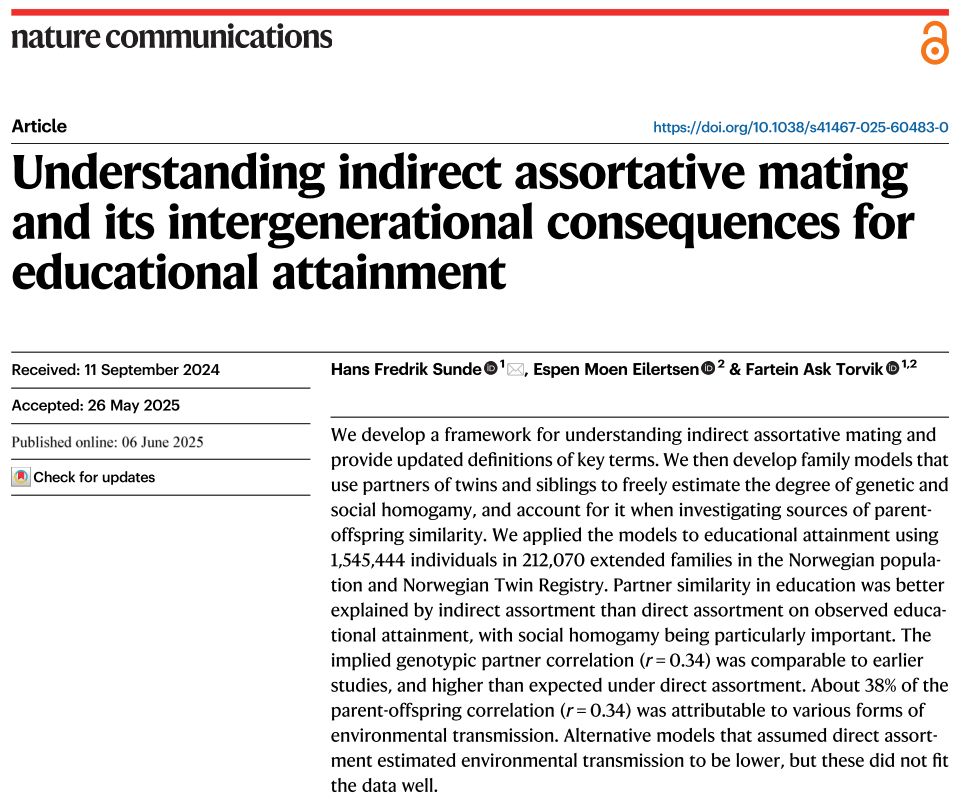
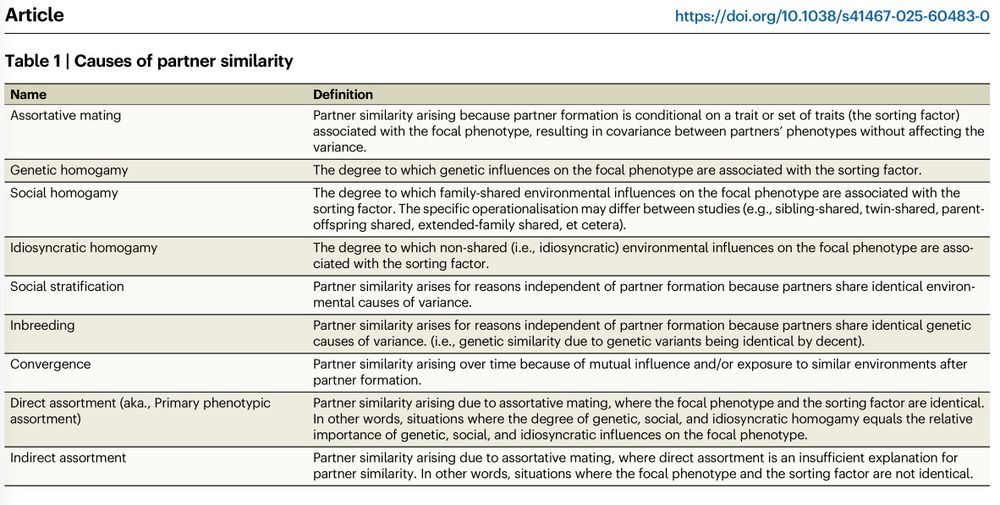
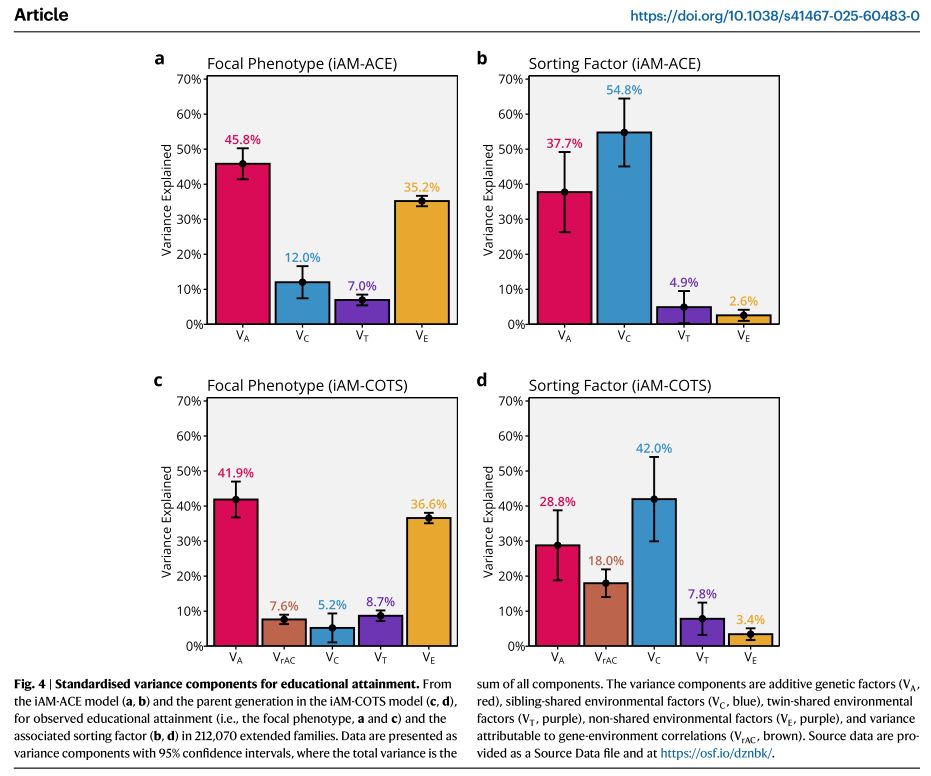
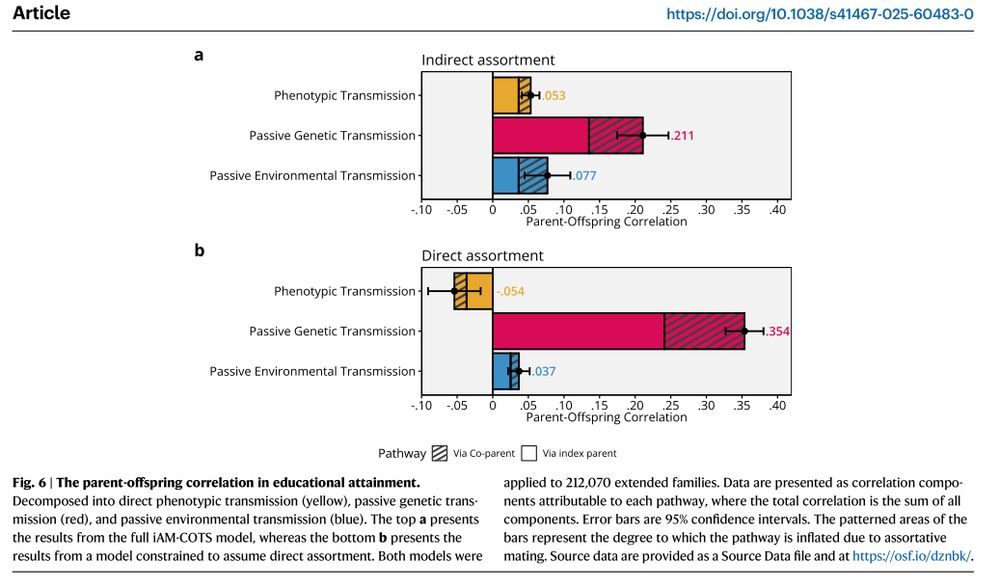
www.nature.com/articles/s41...
osf.io/preprints/ps...
osf.io/preprints/ps...


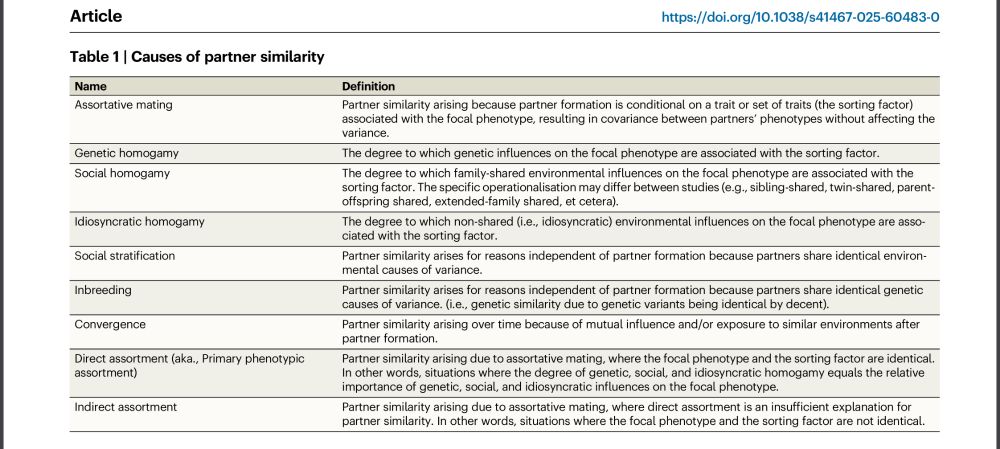


Link: doi.org/10.1038/s414...

Link: doi.org/10.1038/s414...
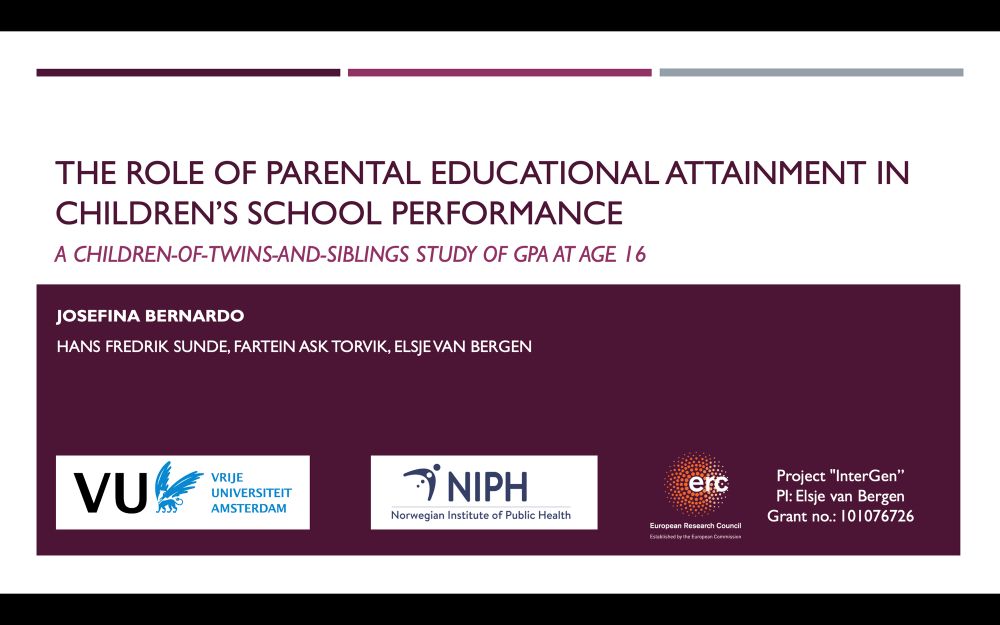
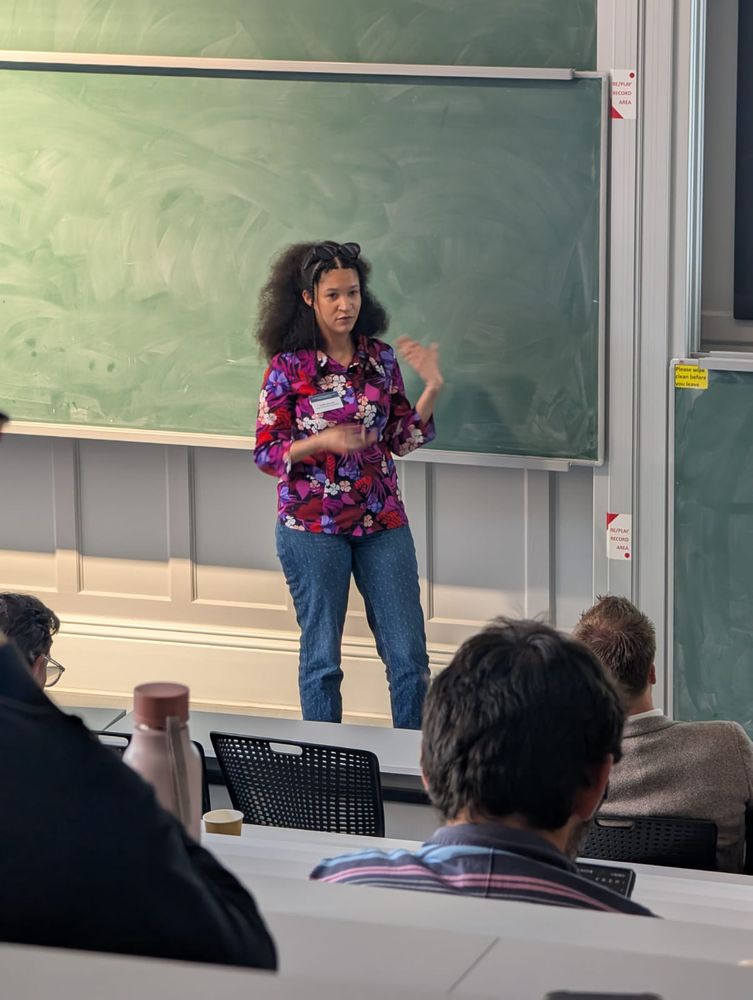
We find no evidence that parental mental health influences children's academic achievement when comparing families in the Norwegian MoBa study.
osf.io/preprints/ps...
Quick thread 👇
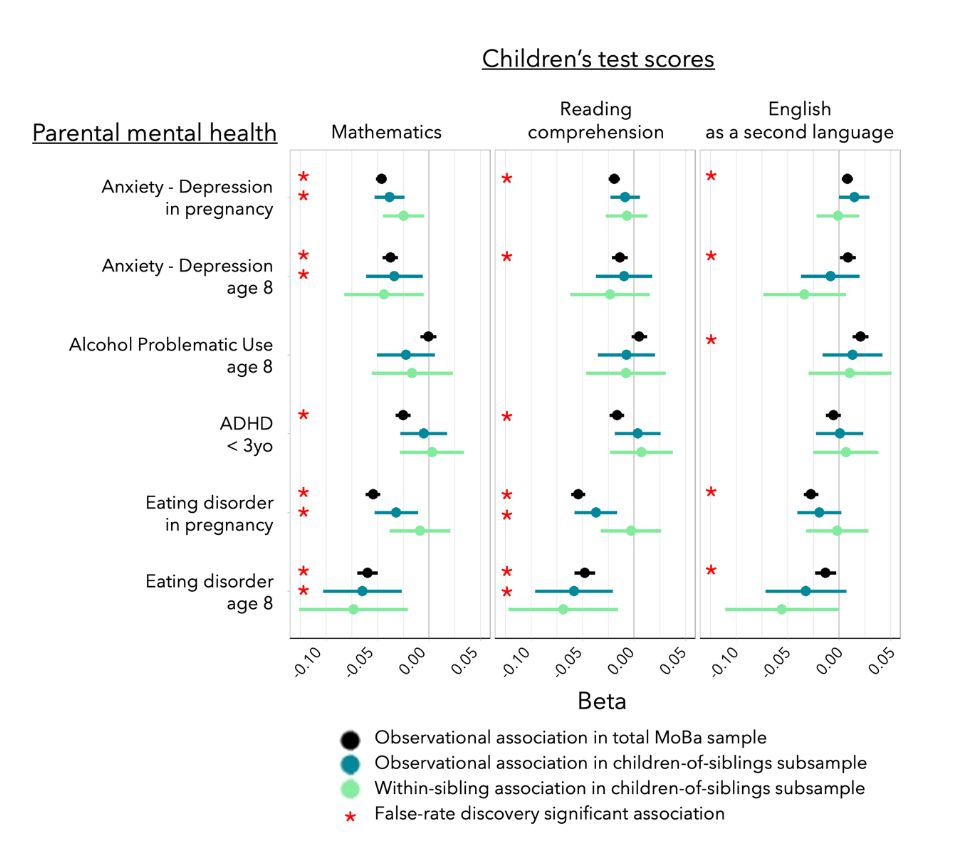
We find no evidence that parental mental health influences children's academic achievement when comparing families in the Norwegian MoBa study.
osf.io/preprints/ps...
Quick thread 👇
The parent-child education link (r = .31) is often seen as purely environmental.
From 569k kids, we decomposed it:
🧬 68% genetic
🏡 12% parental environment
👴 20% extended-family environment
👉 doi.org/10.31234/osf...
🧵

The parent-child education link (r = .31) is often seen as purely environmental.
From 569k kids, we decomposed it:
🧬 68% genetic
🏡 12% parental environment
👴 20% extended-family environment
👉 doi.org/10.31234/osf...
🧵
Derfor er det avgjørende med et nasjonalt individdataregister fra skoler og barnehager, mener Camilla Stoltenberg, @martinflato.bsky.social, @torvik.bsky.social og Karin Monstad.
Derfor er det avgjørende med et nasjonalt individdataregister fra skoler og barnehager, mener Camilla Stoltenberg, @martinflato.bsky.social, @torvik.bsky.social og Karin Monstad.
www.altinget.no/lovebakken/a...

www.altinget.no/lovebakken/a...
www.nrk.no/ytring/fleks...

www.nrk.no/ytring/fleks...

